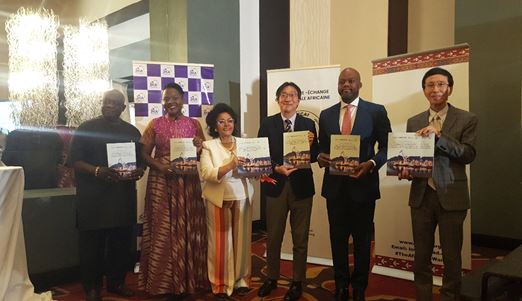By Buertey Francis BORYOR
A comprehensive guide for country impact assessments on Accelerated Industrial Development for Africa (AIDA) and the African Continental free Trade Area (AfCFTA) has been officially launched in Accra.
The AIDA/AfCFTA Standard Assessment Guide is meticulously crafted to serve as a comprehensive tool for evaluating and enhancing economic policies across Africa. It aims to establish uniform criteria for assessing economic performance across member states, streamline trade processes and reduce barriers to intra-African trade, align economic practices with Agenda 2063 and Sustainable Development Goals (SDGs) and support the harmonisation of economic policies to create a cohesive continental market.
The assessment guide is an initiative of African Union Development Agency – New Partnership for Africa’s Development (AUDA-NEPAD), in collaboration with African Union Commission (AUC), AfCFTA Secretariat, Japan International Cooperation Agency (JICA) and other relevant stakeholders.
Toshiyuki Nakamura, Special Advisor to the President of JICA and keynote speaker at the event, said launching the standard assessment guide marks an important milestone to the collaboration between JICA, AUDA-NEPAD, AUC and AfCFTA Secretariat. He added that by utilising the guide, policymakers, economists and other stakeholders will be equipped with the necessary tools to make informed decisions and drive positive change within their respective nations.
Furthermore, he affirmed JICA’s commitment to enhance existing collaboration with the partners to drive industrial development and regional integration. “We must commit to harnessing the power of collaboration and leveraging the power of data. Achieving the vision will require commitment from all partners,” he added.
Wamkele Mene, Secretary-General of AfCFTA Secretariat, while speaking at the event said: “Today, we launch an important tool to assess progress we are making in industrial development and social economic progress based on implementation of the AfCFTA”.
He added that the Secretariat will continue leveraging the leadership and expertise of AUDA-NEPAD to ensure the guide becomes a successful tool in AfCFTA’s implementation. We will continue relying on AUDA-NEPAD because we are not designed to have the technical skill and capability necessary for undertaking this enormous work,” he added.
Mr. Mene referred to AfCFTA as a tool that significantly advances social progress, seeking to eliminate inequity both in and across countries. “Upon review of the African Union (AU) Agenda 2063, it is clear that AfCFTA is one of the tools that the AU deploys to fight poverty, to push back the lack of progress among member nations,” he added.
He admitted that Africa lags behind in industrial development – impacting its job creation, innovation and competiveness, but said the continent has begun making progress in the last two years.
“For instance, in the auto sector we have identified key significant markets, and are in the process of undertaking an assessment that will enable various countries and regions of the continent to be part of their automotive value chain.”
He also noted the Secretariat is working with the government of Sierra Leone to ensure value addition and processing of rubber from that country – to be part of the automotive sector value chain. “We are working toward ensuring that there is free movement of pharmaceutical products across the African continent,” he added.
He expressed gratitude to JICA for the continued support toward AfCFTA’s projects.
Madam Nardos Bekele-Thomas, Chief Executive Officer (CEO) of AUDA-NEPAD, speaking to media after the event said the AIDA/ AfCFTA assessment guide will enable policymakers to see where clarity for policy interventions exists. “It is really a good milestones in terms of our regional integration effort, and in terms of realising the Agenda 2063.
“This will also help us to identify the stronger growth pillars, build the value chain and make sure the continent’s skilled youth looking for engagement are involved in the value chain and become entrepreneurs,” she added.
The event, attended by government officials, business leaders, academics and civil society representatives, aims to achieve three primary objectives: raising awareness among stakeholders on development of the standard assessment guide; mobilising necessary financial resources for subsequent project phases; and fostering momentum and partnerships for effective implementation.










